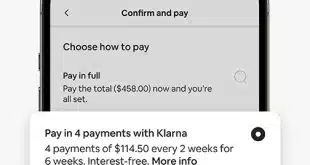MasterCard International said today it will appeal a decision from the U.K.'s Office of Fair Trading that concluded the bank card network's method of setting interchange was anti-competitive. Meanwhile, a trade group representing British merchants said it was disappointed in the OFT ruling and may also appeal. The U.K. regulator also said it would soon reach conclusions in a similar investigation of Visa International's interchange structure in the U.K. The expected appeal from MasterCard, together with the OFT ruling, comes at a time when controversy surrounding bank card interchange is reaching all-time highs in the U.S., with some retailers calling for intervention in the issue here by banking regulators or by the U.S. Congress. The OFT said today it has found that MasterCard U.K. Members Forum Ltd. (MMF), the arm of MasterCard operating in the U.K. and representing most major U.K. banks, violated Article 81 of the European Community Treaty as well as Chapter 1 of the Competition Act of 1998. The U.K. regulator, which has been studying bank card interchange for years, said the MMF's multi-lateral interchange structure kept rates at supercompetitive levels. It also concluded MasterCard's rates compensated issuers for what it called “extraneous” costs, including grace periods for cardholders and rewards programs. The office said to be lawful interchange should be confined to compensating members merely for the actual cost of processing transactions. At the same time, however, the OFT declined to slap MasterCard with a penalty?something its enforcement powers would permit it to do. That decision riled the British Retail Consortium, which welcomed the OFT ruling generally but said it didn't go far enough. The trade group, whose members account for more than 90% of retail volume in the U.K., also decried a change MasterCard made last November in the way it set interchange, alleging the change has made no difference to its members. Because of this change, details of which the OFT did not spell out, the office said its decision applies only to transactions processed between March 1, 2000 and Nov. 18, 2004. The OFT did leave the door open, however, to further investigation. “The OFT has concerns that under the new arrangements [that started Nov. 18], the interchange fee applying to U.K. transactions may still be set with reference to extraneous costs and used to recover those costs,” the regulator said in a paper accompanying the announcement of its ruling. “The OFT expects to start an investigation into the new arrangements…unless this concern is addressed by MasterCard.” The OFT invited MasterCard, as well as any affected third parties, to appeal its ruling to the Competition Appeals Tribunal, a course of action MasterCard lost no time saying it would pursue. In a statement today announcing its intention to appeal, the network said it is “disappointed” in the U.K. decision. “If allowed to stand, today's OFT decision is bad news for consumers and merchants alike,” the statement says, adding the ruling could lead to higher costs and reduced service for U.K. cardholders, while making it harder for “many” consumers to obtain cards. It goes on to say the “unfounded” OFT decision will harm retailers and hand an “unfair competitive advantage” to rival networks controlled by non-banks. The OFT's decision applies to what it calls a “fallback” rate, or multi-lateral interchange fee, that came into force when banks could not agree on bilateral rates. As the OFT observes, the multi-lateral rate applied to virtually all transactions. The decision also covers only consumer cards, excluding activity on MasterCard commercial cards. The OFT has been investigating interchange at least since 2000, when the BRC raised objections. It first notified MasterCard of its own objections in September 2001, following up with further notices in February 2003 and in November. Visa may soon receive similar treatment from the U.K. regulator. The OFT said it plans soon to reach “preliminary conclusions” regarding Visa's interchange practices. It also offered a hint with respect to what those conclusions might be. “Where the OFT applies competition law to other interchange fee arrangements, it expects to do so in a manner consistent with the OFT's [MasterCard] decision,” the companion paper says.
Check Also
A Rapidly Growing Klarna Joins Google Pay in the U.K.
Klarna AB announced early Monday its pay-over-time service has become an available payment option in …





